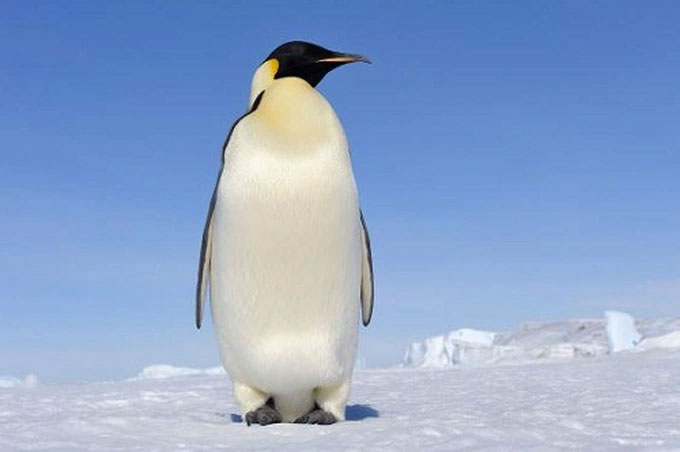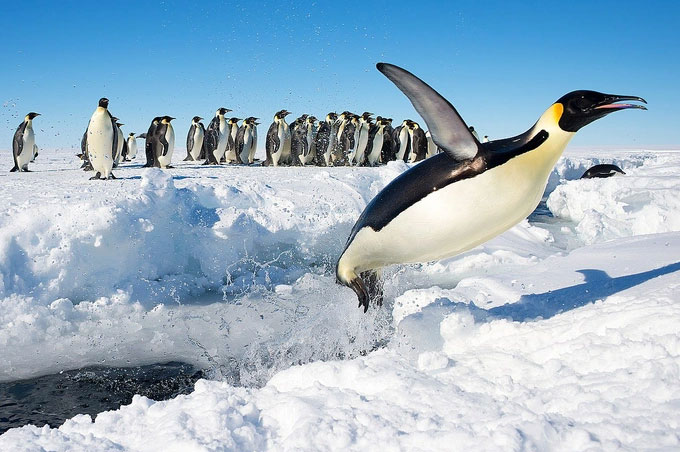Find out why penguins 'stopped' evolution
The penguin's ability to change can be limited by many objective factors. This seems to be predestined in their genes.
Penguins have existed on Earth for more than 60 million years, they are no stranger to climate change and human transitions. They are also said to have adapted to the harshest conditions.

Penguins may face a "stop" of evolution, and make them extinct in the future (Image: Getty Images).
But now, scientists fear that the bird's evolutionary path may have been stopped altogether, as their rate of evolution is among the lowest ever discovered in birds.
This is because most penguin species alive today have experienced a period of physical isolation since the last Ice Age on Earth.
During this time, their contact with fellow birds was significantly limited, mainly due to the fact that they lived in conditions that were divided further and further towards the poles of the hemisphere.
As a result, the DNA resources of each group of birds within the species become limited, and push them closer to the ladder of genetic "stopping". The study was published in the journal Nature Communications.

Penguins are now more migratory.
According to the scientists, the adaptations of a small number of penguin colonies have provided further insight into how the species can cope with human-caused climate change.
Some of the more noticeable features are that they are more migratory, and they organize their foraging offshore, rather than on icebergs. The study suggests that these traits allow them to better respond to climate change, especially their ability to see far away to find prey and move to low latitudes.
Even so, penguins still have the lowest rate of evolution ever recorded among birds of the same "family", such as the albatross.
This leads to half of all penguin species living today at risk of extinction or vulnerable to environmental and climate impacts.
This can even cause penguins to enter a "dead end" on their already arduous evolutionary path.
"The threat of future extinction is always present as penguin populations across the Southern Hemisphere are facing rapid human-induced climate change," the study said.
- How do penguins differentiate?
- New discovery about the existence of Antarctic penguins
- The pair of gay penguins adopted an egg after a long time to ... boulder incubation
- Find the big penguin record
- Mother penguins drop eggs, the whole herd rushes to the rescue
- Homosexual penguins 'kidnapping' penguin child to raise
- Pair of gay penguins celebrating 10 years of living together
- A couple of penguins hold hands on the sea causing storms
- New Zealand built a tunnel for penguins
- Why do hundreds of Antarctic penguins turn into mummies?
- Losing children, double crazy penguins kill the same kind
- Why do penguins 'like' lay eggs in the winter?
 Why do potatoes have eyes?
Why do potatoes have eyes? 'Tragedy' the world's largest carnivorous life: Death becomes ... public toilet
'Tragedy' the world's largest carnivorous life: Death becomes ... public toilet Tomatoes were once considered 'poisonous' for 200 years
Tomatoes were once considered 'poisonous' for 200 years Detecting microscopic parasites on human face
Detecting microscopic parasites on human face